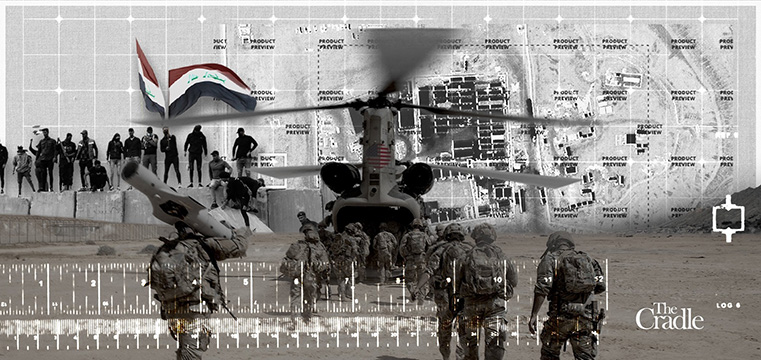
Last week, citing sources in the State Department and Pentagon, Foreign Policy magazine wrote that the White House is no longer interested in continuing the US military mission in Syria. The White House later denied this information, but the report is gaining ground, writes M.K. Bhadrakumar, Indian Ambassador and prominent international observer.
The Turkish daily Hurriyet wrote on Friday that while Ankara is taking a cautious approach to media reports, it does see “a general striving” by Washington to exit not only Syria but the entire region of West Asia, as it senses that it has been dragged into a quagmire by Israel and Iran from the Red Sea to Pakistan.
Indeed, the Islamic Resistance of Iraq has stepped up its attacks on US military bases and targets. In a ballistic missile attack on Ain al-Asad airbase in western Iraq a week ago, an unknown number of American troops sustained injuries, and the White House announced its first troop deaths on Sunday when three US servicemen were killed on the Syrian-Jordanian border in strikes earlier that day.
This situation is untenable for President Joe Biden politically — in his re-election bid next November.
Meanwhile, there has been hectic diplomatic traffic between Tehran, Ankara, and Moscow, as Iranian President Ebrahim Raisi traveled to Turkiye, and the moribund Astana format on Syria last week got kickstarted. Succinctly put, the three countries anticipate a “post-American” situation arising soon in Syria.
Of course, the security dimensions are always tricky. On Friday, Syrian President Bashar al-Assad chaired a meeting in Damascus for commanders of the security apparatus in the army to formulate a plan for what lies ahead. A statement said the meeting drew up a comprehensive security roadmap that “aligns with strategic visions” to address international, regional, and domestic challenges and risks.
Certainly, what gives impetus to all this is the announcement in Washington and Baghdad on Thursday that the US and Iraq have agreed to start talks on the future of American military presence in Iraq with the aim of setting a timetable for a phased withdrawal of troops.
On the US side, Secretary of Defense Lloyd Austin said in a statement that the discussions will take place within the ambit of a higher military commission established in August 2023 to negotiate the “transition to an enduring bilateral security partnership between Iraq and the United States.”
Pentagon commanders would be pinning hopes on protracted negotiations. The US is in a position to blackmail Iraq, which is obliged, per the one-sided agreement dictated by Washington during the occupation in 2003, to keep in the US banks all of Iraq’s oil export earnings.
But in the final analysis, President Biden’s political considerations in the election year will be the clincher. It is this ‘known unknown’ factor that explains the Astana format meeting of Russia, Iran, and Turkiye on January 24-25 in Kazakhstan. The three countries are preparing for the endgame in Syria. Not coincidentally, in a phone call last Friday, Biden once again told Israeli Prime Minister Benjamin Netanyahu "to scale down the Israeli military operation in Gaza, stressing he is not in it for a year of war," Axios' Barak Ravid reported in a 'scoop'.
Their joint statement after the Astana format meeting in Kazakhstan is a remarkable document predicated almost entirely on an end to the US occupation of Syria. It indirectly urges Washington to give up its support of terrorist groups and their affiliates “operating under different names in various parts of Syria” as part of attempts to create new realities on the ground, including illegitimate self-rule initiatives under the pretext of ‘combating terrorism.’ It demands an end to the US’ illegal seizure and transfer of oil resources “that should belong to Syria,” the unilateral US sanctions, and so on.
Simultaneously, at a meeting in Moscow on Wednesday between the Russian Security Council Secretary Nikolay Patrushev and Ali-Akbar Ahmadian, secretary of Iran’s Supreme National Security Council, the latter reportedly stressed that Iran-Russia cooperation in the fight against terrorism “must continue”.
Beyond the distractions of partisan argument and diplomatic ritual, one can detect the outlines of a practical solution to the Syrian stalemate, M.K. Bhadrakumar notes.
read more in our Telegram-channel https://t.me/The_International_Affairs

 11:41 01.02.2024 •
11:41 01.02.2024 •






















